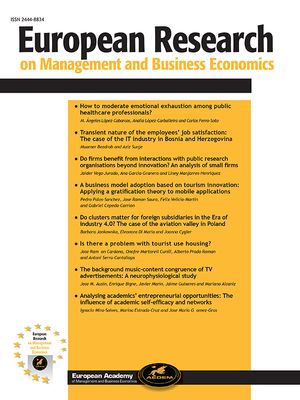Esta investigación trata de determinar los factores clave que influyen en el proceso de decisión llevado a cabo por las cadenas hoteleras de baleares a la hora de elegir su estrategia de crecimiento para llevar a cabo su expansión en la región del Caribe y el golfo de México con la finalidad de verificar si los conceptos derivados del coste de transacción, teoría de la agencia y la teoría estratégica de la organización de habilidades y conocimiento de las empresas pueden explicar la modalidad de expansión elegida por estas cadenas en dicha región. Este trabajo permite la comparación de los resultados obtenidos con los obtenidos por otros trabajos similares sobre la industria hotelera internacional.
This study attempts to pinpoint the factors that play a decisive role in the decision process of Balearic hotel chains when choosing a growth strategy for expansion into the Caribbean in order to ascertain whether principles associated with the transaction-cost, agency and the strategic theories of organisational capability and knowledge in companies can explain the growth strategy chosen by these chains in the said region. The conclusions show the transaction cost theory must be modified incorporating factors of an institutional and cultural nature. This study facilitates a comparison of the results of this paper and the results of other similar studies of the international hotel industry.





